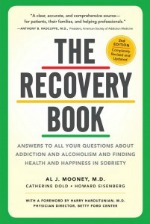One thing that was really important for me as a pre-teenager was having friends because you kind of shut out your parents because of the arguments and the mixed messages, but we hung around a lot of recovering people and what I learned from the friends was that it’s a disease, and those families now are getting happy. There were kids that I could play with, we talked about this family disease that we were trying to recover from and then over time, I began to rebuild the trust that my parents should have maintained all along. So, that parental thing is not a matter of taking sides. It’s just rebuilding trust for the truth.
That’s why it’s so important for the family member, and I’ve seen say it work both ways, where the alcoholic gets sober and has to help the kids come around to the truth, and for family members who’ve watched the alcoholic spiral down, and they have to bring in the kids with truth and awareness.
Kids will respond. Kids are hugely resilient. If we can give them good information, they don’t have to repeat the cycle. Or like in my family I’ve got two brothers and a sister and they all are A.A. members now in recovery, but they knew there was hope for them if they developed the symptoms.
Kids will fall into place if they’re given a good environment to do that in.
There are a number of strategies that will motivate the alcoholic to get help that are almost universally successful. So the first step— and this is where families are the most resistant. They will put tons and tons of effort into helping the alcoholic but they won’t come to a meeting. I’ve got a Monday meeting, an hour a week, and I’ll say, “If you want my involvement in coaching or professional help or whatever, I’ve got a free meeting. I want you to show up for one hour at 7:30 on Mondays, and then we’ll start addressing your issues and then we’ll move into helping the alcoholic or whatever you came to me for originally.” You’d be amazed at how few people will take one hour a week free to solve the biggest problem in their life.
They do bounce back. They come six months later. I’ve had people come five years later, and say, “You know, I’m ready to listen to you now.”
The Divorce Coach Says
You can’t truly protect or help your kids if you haven’t confronted the problem and I know, for conflict-avoidant people that’s a challenge. So if your spouse/STBX/ex’s drinking is causing problems then you have to speak up about those issues with them and it likely isn’t going to be a single conversation but rather one that happens over time. You can’t tiptoe around the issue – it is the proverbial elephant in the room and it needs to be talked about.
I think Dr. Al has provided a great framework for doing this and I do want to emphasize that getting help to do this is important. There isn’t enough in this post alone to give you the knowledge and courage to have the necessary conversations. It’s starting point.
More specifically, you need to consider what you know about your ex’s drinking behavior and identify your concerns for what this means for when your children are in their care.
For example, if you know your ex routinely drinks after work then you may be concerned about your ex driving your children in the evening to extra-curricula activities. You may also be concerned that our ex may miss a scheduled pick up and leave your kids stranded. You could be concerned about them being properly fed or their personal hygiene.
Having identified your concerns, you’ll want to brainstorm all the possible solutions or safeguards. You’ll want to take these into consideration when developing your parenting plan.
Now, you could of course, orchestrate the logistics so you’re doing the pickups and are always on call for the kids, just in case. But this is certainly not the transparency that Dr. Al is advising and how can you have honest, frank discussions with your children that educates them about this disease and help them make good choices for themselves, if you haven’t voiced your concerns with your ex?
Again, this is where getting professional help from someone with experience dealing with these issues would be beneficial. Restricted parenting time may end up being a consequence but the beginning point should be how to safeguard your children without taking away parenting time.
Coming next: My conversation with Dr. Al continues as we discuss what to do while your alcoholic spouse is in recovery.
Al J. Mooney, M.D. is co-author of The Recovery Book: Answers to All Your Questions About Addiction And Alcoholism And Finding Health And Happiness in Sobriety. He is the Director of Addiction Medicine and Recovery at Willingway, and lectures internationally on the latest science and treatments for recovery.
Photo Credit: 2015© www.clipart.com
